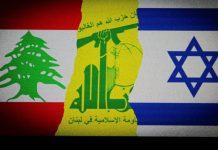
دعوات للكونغرس لغلق قنوات عربية-أميركية مخترقة إيرانياً
الاثنين 2 ذو القعدة 1436هـ – 17 أغسطس 2015م
صالح حميد – العربية.نت
وجهت منظمات عربية – أميركية من واشنطن، دعوة للكونغرس الأميركي لوقف تمويل شبكة قنوات “الحرة” وإذاعة “سوا” وإغلاقهما لكونهما “مخترقتين من قبل اللوبي الإيراني وجهات متحالفة مع حزب الله اللبناني”.
وجاءت هذه الدعوة في بيان أصدره “تحالف الأميركيين الشرق أوسطيين من أجل الديمقراطية” الذي يضم جاليات عربية ومشرقية ومنظمات تابعة لقوميات إيران غير الفارسية، من المواطنين في الولايات المتحدة، والذي طالب بالشروع بتحقيق واسع حول التواصل بين مركز هذه القنوات العربية -الأميركية بـ”سبرينغفيلد” القريبة من واشنطن، ومصادر سياسية لبنانية متحالفة مع إيران وحزب الله”، كما جاء في البيان.
وحمل البيان الذي تلقت “العربية.نت” نسخة منه، توقيع الأمين العام للتحالف، توم حرب، الذي أشار إلى أن التحالف شجع الحكومة الأميركية قبل عشرة أعوام على توسيع الإعلام الأميركي بالعربية للتواصل مع منظمات المجتمع المدني في العالم العربي والشرق الأوسط حيث أقيمت قناة “الحرة” وإذاعة “سوا”، إلا أنهما سرعان ما انزلقتا تحت نحو ترطيب الأجواء مع نظام الملالي الإيراني وحزب الله اللبناني، حيث فصلت قناة “الحرة” العديد من الصحافيين الذين فندوا الدعايات الإيرانية “.
وبحسب حرب: “ولكن كان أعظم من جميع الكوارث، نجاح اللوبي الموالي للنظام الإيراني في واشنطن بإغلاق “إذاعة العراق الحر” في أغسطس 2015، من قبل شبكة الإعلام الأميركية ” البي. بي.جي”.
وكانت “العربية.نت” نشرت في نهاية يوليو الماضي، ملابسات إسكات إذاعة العراق الحر، الناطقة بالعربية من واشنطن، بعد صدور قرار من شبكة الإعلام الأميركية استجابة لضغوط اللوبي الإيراني، عقب الاتفاق النووي بين طهران ودول 5+1. وتعد إذاعة العراق الحر، من أبرز وسائل الإعلام العربية – الأميركية التي عارضت التدخل الإيراني في العراق والدول العربية، وقامت بفضح انتهاكات إيران لحقوق الإنسان في إيران ودعم طهران للإرهاب في المنطقة والعالم منذ انطلاقتها الناجحة منذ 13 عاما ونيفا. ويرى ناشطون أن قرار إغلاق الإذاعة يخدم أهداف النظام الإيراني القمعية التي تسعى إلى تكميم الأفواه وعدم نقل الصورة المأساوية وانتهاكات حقوق الإنسان التي يتعرض لها الناشطون والصحافيون والنساء والأقليات العرقية والدينية على يد النظام الديكتاتوري في طهران”.
وانتقد حرب السماح لمحطات عربية بالعمل الدعائي لصالح النظام الإيراني في أميركا، وقال: “تحت إدارة أوباما حصل الأسوأ وانتقل مديرو قناة الحرة وإذاعة سوا إلى الأساليب المؤيدة لإيران وتهميش أصوات الحرية في الشرق الأوسط”. وأضاف: “بينما كانت هناك القليل من التغطية لنشاطات المعارضة الإيرانية، كانت وسائل الإعلام هذه تميل إلى جانب حلفاء حزب الله في لبنان ضد بقية السكان، وتفضل حكومة المالكي العراقية الموالية لإيران على الشيعة والسنة المعتدلين والأكراد، ذلك إلى جانب الإخفاق في بث أي برامج هامة تشمل الأقليات المسيحية، إلا إذا أعطوا الائتمان إلى إيران”.
وبحسب رئيس تحالف الأميركيين الشرق أوسطيين، فإنه “من المفارقات أن الكونغرس الأميركي – الذي يمول البث – نادراً ما ينعم بتغطية نشاطاته التي تدعو إلى الديمقراطية والحرية في الشرق الأوسط، أو في جلسات الاستماع التي تتعرض نظام آيات الله في إيران بالانتقاد”. وأكد حرب: “لقد استخدمت أموال دافعي الضرائب الممنوحة من المشرعين الأميركيين لتقويض السياسة الأميركية في الشرق الأوسط، وإعطاء ميزة للنظام الإيراني وحلفائه، بحيث إن أصواتا في المنطقة وصفوا قناة الحرة بـ”تلفزيون حزب الله” في واشنطن”. يذكر أن رئيس لجنة العلاقات الخارجية، أد رويس، وعددا من أعضاء الكونغرس الأميركي، قد طالبوا في رسالة لهم بإلغاء قرار شبكة الإعلام الأميركية الـ”بي بي جي” القاضي بوقف عمل إذاعة العراق الحر لكن دون جدوى، حيث جاء الرد بأن “الرسالة جاءت متأخرة”.
Congress Must Shut Down Compromised U.S. Arabic Broadcast
TOM HARB/August 14, 2015
In the past ten years we have been pushing the U.S. government, both the administrations and Congress, Democrats and Republicans, to increasingly fund an American media and broadcast in the Arabic language so we can reach out to and partner with civil societies in the Arab world and the Middle East. Since 9/11, Americans have been debating how to defeat the forces of terror and the extremist ideologies generated in the Greater Middle East and spreading throughout the world. The answer has always been and remains the same: a war of ideas to defeat the ideologies behind extremism, should they be Salafi Takfiri or Khomeinist, and a campaign to support the democracy seeking forces in the region.
Since 2004, American taxpayers, via their Congress, have been significantly funding a web of Arabic broadcasts to respond to these calls for outreach initially generated by community NGOs based in the United States. We representatives of Syrian, Iraqi, Lebanese, Egyptian, Jordanian, and other active groups based in the United States engaged in the democracy battle in the Middle East were the ones who asked our U.S. government to create and fund these Arabic media. Ten years ago, Washington widened its Arabic outreach by launching a TV station, al Hurra, and a radio station, SAWA, as well as other Web activities. Millions of dollars were invested in these institutions, not only from sophisticated buildings in Virginia and D.C., but also bureaus throughout the Middle East. Congress put the network under the auspices of the Board of Broadcast Governors (BBG), which oversees the activities and efficiency of U.S. funded media.
Under the Bush administration, both al Hurra and SAWA slowly slipped from being fully engaged in pushing back against the two forces of terror-the Jihadists and the Iranian regime-to a mellow messaging. Under two of its directors, al Hurra purged many journalists responding to the Muslim Brotherhood and Ayatollahs’ propaganda. While the Bush administration was waging a war of ideas on its surface, its Arab media bureaucrats under the protection of the BBG were mollifying the message against the Islamists and cutting off any criticism of Tehran’s regime. Speeches by Hasan Nasrallah, the head of terror group Hezbollah, were fully aired and Hamas spokespersons were on U.S. funded Arabic broadcasts.
Under the Obama administration, it got worse. The directors of al Hurra and SAWA moved to mold the messaging toward favoring pro-Iranian talking points and marginalizing the voices of freedom in the Middle East. While there was little to no coverage of the Iranian opposition, the media leaned toward Hezbollah allies in Lebanon against the rest of the population, favored the pro-Iranian Maliki government over the Shia and Sunni moderates and Kurds, and failed to broadcast any significant programs covering Christian minorities-unless they gave credit to Iran, among other controversial choices. Ironically, the U.S. Congress funded broadcast rarely covered congressional calls for democracy and freedom in the Middle East or hearings and research exposing the Ayatollahs. Taxpayer money granted by U.S. lawmakers has been used to undermine American policy in the Middle East and give advantage to the Iranian regime and its allies. To such a point that voices in the region described al Hurra as Hezbollah TV in Washington and SAWA as Hamas’ Voice in America.
But the greatest of all disasters was the success of the pro-Iran regime lobby in shutting down the only U.S. funded Arabic media, Radio Free Iraq (RFI), on August 1, 2015. RFI was launched in late 1998 to connect with Iraq’s population and encourage democratic culture. After the invasion in 2003, the Prague-based broadcast became one of the most listened to across Iraq and started to gain momentum among Arabic speakers in the region.
Unlike al Hurra and SAWA, RFI interviewed dissidents, democracy groups, minorities NGOs and was in line with U.S. policy in the war on terror and on freedom forward. RFI covered the moderate Shia, Sunni, Kurds, Christians and Yazidis, and other communities in the region. During the Arab Spring it reached out to civil societies and gave voices to the opposition against the Ikhwan and the Ayatollahs. Moreover, RFI aired statements and declarations by congressional leaders and entities far more often than the rest of the compromised U.S. funded media. But the pro-Tehran lobby waged a systematic campaign of manipulation starting in 2013 to shut down the RFI studios using the services of the al Hurra and SAWA bureaucrats. Congress failed to realize that the best media it was funding was attacked under its own watch. Editors and correspondents of Radio Free Iraq were intimidated, pressured economically, and eventually ordered by the BBG and the State Department to shut down the operation. Even when congressional leaders woke up and finally sent a letter to the BBG-which they fund-asking to keep RFI open, the pro-Iran lobby dismissed Congress and forced the team in Prague to end the broadcast operations. Legally, the shutdown can and should be contested because this was a rebellion against the U.S. Congress by bureaucrats sympathizing with a foreign regime.
But the American people, and particularly our communities, cannot tolerate a penetration by the Iranian regime of taxpayer institutions in America and the ending of the only U.S. funded broadcast that supported democracy in the region. Congress must act, and act big. This is not about restoring Radio Free Iraq at this point, for the poison has spread throughout the entire government funded media agencies. Congress must shut down al Hurra, SAWA, and any Web activities related to them and influenced by the Iranian lobby, and move to dismantle the BBG. This Congress has a mandate from the 2014 election to take back America. First, clean up the slate and then rebuild a new Arabic broadcast representing what the American people and taxpayers want, and what the Middle East and Arab American communities aspire to.
This is a letter sent by leaders of the Foreign Affairs Committee in the US House to the head of BBG not to shut down Radio Free Iraq, which Congress funds. The BBG, penetrated by Iranian influence dismissed the letter and shut down the radio after the Obama Administration ordered them to.
============================================================================
June 8, 2015
The Honorable Jeffery Shell
Chairman
Broadcasting Board of Governors
330 Independence Ave., SW
Washington, DC 20237
Dear Mr. Chairman:
We are writing to express our deep concern regarding the Broadcasting Board of Governors (“BBG”) decision to transfer Radio Free Europe-Radio Liberty’s (“RFE/RL”) Iraqi service to the Middle East Broadcasting Network (“MBN”) and discontinue programming. According to the BBG’s fiscal year 2016 Congressional Budget Justification, this cut reflect the BBG’s and the Administration’s “policy on public messaging and global engagement strategies.” Given the current unrest in Iraq and Syria and the continued threat posed by ISIS and other terrorist organizations in the region, it seems shortsighted to reduce programming to Iraq and we urge the agency and the Administration to reconsider its strategy.
Recently, the Islamic State (“ISIL”) launched its own radio station, Al Bayan, which reaches a global audience by broadcasting through the internet. According to US News and World Report, Al Bayan employs a broadcasting format that is similar to National Public Radio in the U.S. but the broadcasting content is entirely propagandistic, highlighting ISIS successes. Al Bayan and ISIS’s other online outreach efforts have become powerful recruitment tools for the organization. NATO’s Supreme Allied Commander, Gen. Philip Breedlove, has spoken of the need to counter the “tailor-made messaging” that ISIS creates through its aggressive social media outreach. By some estimates, ISIS’s western-origin foreign fighters will top 10,000 this year. To effectively counter ISIS’s messaging, we need to increase (not cut) our programming to Iraq; Radio Free Iraq is critical to that effort.
Radio Free Iraq (“RFI”) has 17 years of experience and a 20% market share of Iraqi adults; its reach extends beyond radio to include robust internet and social media platforms. RFI has been reporting from the front lines in Mosul, providing news and information that many international media outlets are not able to provide. We understand the BBG’s desire to leverage finite resources and we applaud the agency’s efforts to reduce duplication but in the case of RFI, there does not appear to be a duplication problem. According to RFI, content is already shared with Radio Sawa and TV Alhurra.
We strongly urge you to reconsider the decision to eliminate the Radio Free Iraq service.
Sincerely,
______________
EDWARD R. ROYCE
Chairman
Committee on Foreign Affairs
________________________
ILEANA ROS-LEHTINEN
Chairwoman
Committee on Foreign Affairs
Subcommittee on the Middle East & North Africa
_______________________
SEAN DUFFY
Chairman
Committee on Financial Services
Subcommittee on Oversight & Investigations
________________________
ELIOT ENGEL
Ranking Member
Committee on Foreign Affairs
**Tom Harb is the Co-Chair for Middle East Americans for Democracy





















